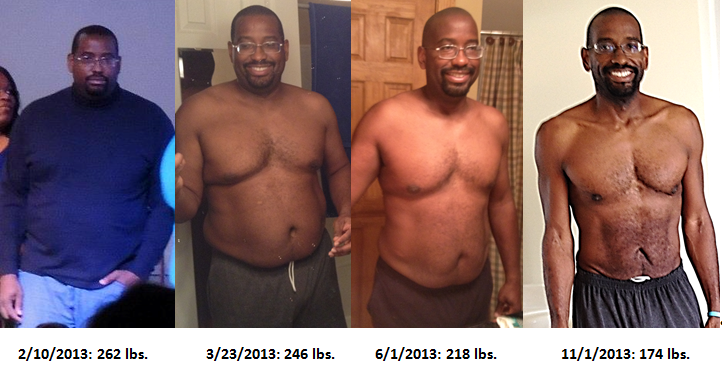
Many diseases can be prevented by practicing healthy living tips for seniors. It is vital to keep up with vaccinations. This may sound obvious, however it could save your health. One surprising healthy living tip for seniors is hand washing. This can help you stay healthy longer and prevent germs from spreading. Learn more about this tip. It's possible that you are surprised to find out that it hasn’t been a tradition for years.
Socialization
According to a study, older people who are socially active are less likely cognitive impairments or to develop dementia. Rush University Medical Center's Alzheimer's Disease Center determined that social seniors have a lower risk of developing depression. Senior socialization is essential for your overall health, stress reduction, and increased longevity. Socialization is a great way for you to improve your mood, and the mood of others around you.
Physical activity
Being active is one key factor in enhancing the quality and life expectancy of seniors. Regular physical activity improves health and delays many diseases related to aging. Exercise strengthens muscles and prevents joint pain. It also reduces the chance of falling. Seniors with weak muscles and joints can greatly benefit from aerobic exercise programs. These programs can also help arthritis sufferers stay active.

Nutrition
It is important to keep your mind active as a Senior Living tip. Research shows that good sleep promotes memory and concentration. Avoid caffeine as it can disrupt your sleep patterns. You can also keep in touch with family members and friends. You can also engage creative activities like reading or solving crossword puzzles. Although you should avoid processed grains and refined sugars, you should still consume them in moderation. Here are some healthy lifestyle tips for seniors.
Regular wellness visits
There are many tips and tricks for healthy living for seniors. However, regular checkups are essential for early detection of illnesses and diseases. Your immune system can be compromised as a senior. Even minor illnesses may cause serious complications. Senior citizens should be seen by their doctors to keep themselves healthy and prevent any illness. These wellness visits are a great way to learn about your health. These visits can help prevent injuries such as falls.
Avoiding caffeine
It is good for your body, but it is not necessary to avoid caffeine. Moderate amounts can do no harm. Many assisted living facilities now offer fresh-brewed tea and coffee. Although caffeine may increase your energy levels, it can cause adverse health effects for seniors. To avoid these problems, you should limit your caffeine intake. Instead, consider home care software and homecare systems to monitor the intake of your senior loved one.

FAQ
Why is it important to improve your emotional health?
Your emotional health is vital for your happiness and well being. You won't be able perform at your best if you aren't emotionally healthy. People with depression are often unable to work efficiently. People with depression may also have anxiety, panic attacks and insomnia. The good news is that these conditions can be treated successfully with medication and therapy.
What do psychologists say about mental health?
Psychologists believe that mental wellbeing is essential for human development. Psychologists believe that mental well-being is more than just being healthy.
Different views are held by psychologists about mental health. Psychologists believe that mental health does not need to be important because so many people do not have mental illness. Others believe that mental health and functioning properly are essential.
Are mental health and work more important than mental health?
It is vital that everyone has a good mental health, especially those who work. Try to find a way to unwind after work if you feel stressed.
Talk to your supervisor or boss if stress is a problem. They may be able to suggest ways to relieve your stress.
Your physical health is important too. Eat right, exercise, get enough sleep, and eat healthy.
Are there any problems with me if my depression is persistent?
Teens are often affected by depression. Yet, depression is common among teenagers.
This doesn't necessarily mean you're weak or insane. People who are depressed don't know it. Depression is a medical condition.
There are different kinds of depression. Some people feel only sadness, while some others experience other emotions. There are many levels of severity.
Some people experience mild depression, while others have severe cases. It's important to understand that depression isn't always bad. Sometimes, it helps us cope with stressful events.
If you feel constantly tired or sad, consult a doctor. Your doctor can diagnose and decide if you require treatment.
Why is mental health important?
Work, play. Learn. And love. Mental health refers to our overall wellbeing. This includes all the factors that can impact our mental, physical, emotional, spiritual, and social well-being every day. The good news? There are many ways to take care of yourself mentally. It's not necessary to do all the things at once. You can just start!
Understanding your current mental health status is the first step in improving it. Take this quiz to see if you're doing enough for your mental well-being. If you're not satisfied with your results, you might consider making lifestyle changes.
You scored well, congratulations! Now, look at some specific things you can do to help maintain and improve your mental health.
-
Get enough sleep You can keep your brain sharp, energized and alert by getting enough sleep. Try to get 7-8 hours of sleep per night, which is about the amount recommended by the American Academy of Pediatrics (AAP).
-
Exercise Regularly. Exercise releases endorphins, which make you happier and less likely stress. Do 30 minutes exercise five times a weeks.
What affects my mental health on my relationships and friendships?
Your mental health can have a profound impact on your daily life. It can affect your ability and willingness to work at all levels. Mental health issues can also make it challenging to form meaningful relationships.
It's easy for people to judge you when you have a mental illness. Because you feel that no one understands, you may avoid social situations.
It's important to remember, however, that people want to be with you. They just need to learn how to approach and approach you.
If you have trouble connecting with people, it is worth talking to them about what your feelings are. Tell them how you're feeling and ask them for their advice.
How can I improve my mental health?
It is vital to maintain mental health, especially for those who are stressed from school, work, and family. You can improve your mental health by exercising regularly, eating healthy foods, sleeping well, and spending quality time with family members. Exercise makes us feel happier and releases endorphins. Eating healthy foods also helps our bodies function properly. Sleeping well gives us energy throughout the day. And finally, spending quality time with loved ones improves our relationships and reduces stress.
Statistics
- It does have some influence, but not nearly as much as we might think, so focusing less on attaining wealth will likely make you happier (Aknin, Norton, & Dunn, 2009); (positivepsychology.com)
- It means no drinking any alcoholic beverages and no taking any drugs that aren't 100% natural.
- Appropriate nutrition and exercise are likely among the most efficacious and cost-effective positive mental health interventions. (ncbi.nlm.nih.gov)
- Neuropsychiatric diseases are the leading cause of death and disability in the U.S., accounting for 18.7 percent of all years of potential lifespan loss and premature mortality.
- In any given year, an estimated 18.1% (43.6 million) of U.S. adults ages 18 years or older suffered from any mental illness, and 4.2% (9.8 million) (healthypeople.gov)
External Links
How To
How to tell if you need help from a mental-health expert
There are some indicators that will alert you to the possibility of professional assistance. If you are noticing any warning signs, consult a doctor.
-
You feel lost in your own head.
-
You have had trouble sleeping.
-
Concentrating can cause your thoughts to race.
-
You start to think about suicide.
-
You feel hopeless.
-
It feels like your life isn’t worth living.
-
You have lost interest in things you used to love.
-
You have stopped eating.
-
You are now withdrawing.
-
To cope with stress, you may have tried to use drugs or alcohol.
-
You are losing friends or family.
-
You have experienced other physical symptoms such as headaches, stomachaches, backaches, chest pains, etc.
If you have any of these symptoms, it is important to immediately see a doctor.